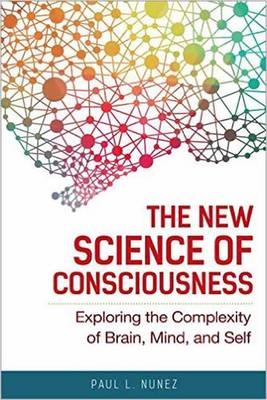
The New Science of Consciousness
Exploring the Complexity of Brain, Mind, and Self
Seiten
2016
Prometheus Books (Verlag)
978-1-63388-219-5 (ISBN)
Prometheus Books (Verlag)
978-1-63388-219-5 (ISBN)
- Titel nicht im Sortiment
- Artikel merken
This book explains in layperson's terms a new approach to studying consciousness based on a partnership between neuroscientists and complexity scientists. The author, a physicist turned neuroscientist, outlines essential features of this partnership. The new science goes well beyond traditional cognitive science and simple neural networks, which are often the focus in artificial intelligence research. It involves many fields including neuroscience, artificial intelligence, physics, cognitive science, and psychiatry.
What causes autism, schizophrenia, and Alzheimer's disease? How does our unconscious influence our actions? As the author shows, these important questions can be viewed in a new light when neuroscientists and complexity scientists work together. This cross-disciplinary approach also offers fresh insights into the major unsolved challenge of our age: the origin of self-awareness. Do minds emerge from brains? Or is something more involved?
Using human social networks as a metaphor, the author explains how brain behavior can be compared with the collective behavior of large-scale global systems. Emergent global systems that interact and form relationships with lower levels of organization and the surrounding environment provide useful models for complex brain functions.
By blending lucid explanations with illuminating analogies, this book offers the general reader a window into the latest exciting developments in brain research.
What causes autism, schizophrenia, and Alzheimer's disease? How does our unconscious influence our actions? As the author shows, these important questions can be viewed in a new light when neuroscientists and complexity scientists work together. This cross-disciplinary approach also offers fresh insights into the major unsolved challenge of our age: the origin of self-awareness. Do minds emerge from brains? Or is something more involved?
Using human social networks as a metaphor, the author explains how brain behavior can be compared with the collective behavior of large-scale global systems. Emergent global systems that interact and form relationships with lower levels of organization and the surrounding environment provide useful models for complex brain functions.
By blending lucid explanations with illuminating analogies, this book offers the general reader a window into the latest exciting developments in brain research.
Paul L. Nunez is emeritus professor of biomedical engineering at Tulane University and the owner and chief scientist of Cognitive Dissonance, LLC, a consulting firm specializing in brain research. He is the author of four books on the brain, most recently Brain, Mind, and the Structure of Reality.
| Erscheinungsdatum | 25.11.2016 |
|---|---|
| Sprache | englisch |
| Maße | 161 x 235 mm |
| Gewicht | 608 g |
| Themenwelt | Geisteswissenschaften ► Psychologie ► Allgemeine Psychologie |
| Geisteswissenschaften ► Psychologie ► Psychoanalyse / Tiefenpsychologie | |
| Geisteswissenschaften ► Psychologie ► Verhaltenstherapie | |
| Medizin / Pharmazie ► Medizinische Fachgebiete ► Neurologie | |
| Naturwissenschaften ► Biologie ► Humanbiologie | |
| Naturwissenschaften ► Biologie ► Zoologie | |
| ISBN-10 | 1-63388-219-5 / 1633882195 |
| ISBN-13 | 978-1-63388-219-5 / 9781633882195 |
| Zustand | Neuware |
| Informationen gemäß Produktsicherheitsverordnung (GPSR) | |
| Haben Sie eine Frage zum Produkt? |
Mehr entdecken
aus dem Bereich
aus dem Bereich
Techniken der Verhaltenstherapie
Buch (2024)
Julius Beltz GmbH & Co. KG (Verlag)
CHF 48,95


